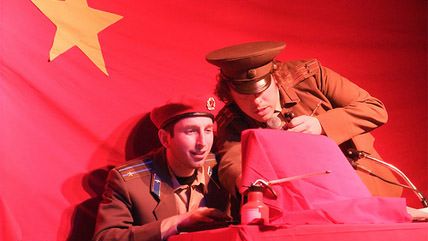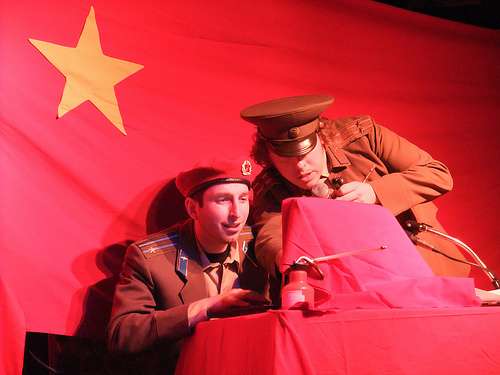Is NBC's Sochi Cybersecurity Scare Complete B.S.?


While other outlets address serious issues surrounding the Olympics, like the mistreatment of gays, questionably-sound infrastructure, and the threats of terrorist attacks, NBC decided to spice things up and bring a bogeyman to the games: hackers. In a newscast last week, the network insinuated that phones and computers are immediately susceptible to dangerous Russian hackers upon connecting to Wi-Fi in Sochi. One internet security expert describes NBC's presentation as "100 percent fraudulent," and believes the reporter "hacked himself by knowingly downloading a hostile Android app."
On Tuesday, NBC aired "Hacked Within Minutes: Sochi Visitors Face Internet Minefield," featuring Brian Williams and chief foreign correspondent Richard Engel. Williams opened with a grave warning that "visitors to Russia can expect to be hacked," and that "it's not a matter of if but when."
Engel presented a newly opened smartphone "to browse for information about the Sochi Olympics" in a dimly lit Russian cafe. He connected to the internet and asserted that "almost immediately we were hacked" and attacked by malware.
Errata Security CEO Robert Graham says the report is "nonsense" and that "absolutely zero percent of the story was about turning on a computer and connecting to a Sochi network." He lists three glaring problems with NBC's presentation:
1. They aren't in Sochi, but in Moscow, 1007 miles away.
2. The "hack" happens because of the websites they visit (Olympic themed websites), not their physical location. The results would've been the same in America.
3. The phone didn't "get" hacked; Richard Engel initiated the download of a hostile Android app onto his phone… and he had to disable the security on the phone to do it.
Graham then tried to replicate Engel's experiment. After going to great lengths, he writes, "I gave up and cheated -- cheating the same way I'm sure Richard Engel cheated. Instead of looking just for Sochi, I went looking for the viruses themselves."
An NBC representative responded by charging, "The claims made [by Graham] are completely without merit." According to CNET, instead of focusing on the actual hacking claims, the representative "noted that the report made it clear from the beginning that the taping was done in Moscow." Judge for yourself how obvious that was in the broadcast.
This kind of sensationalist reporting not only calls into question NBC's credibility, it is outright counterproductive for technology freedom. As The Verge notes, deliberately muddling the distinction between the supposed threats posed by hackers and the real ones posed by massive government surveillance systems "is one of the things that allows that very system to be set up."
